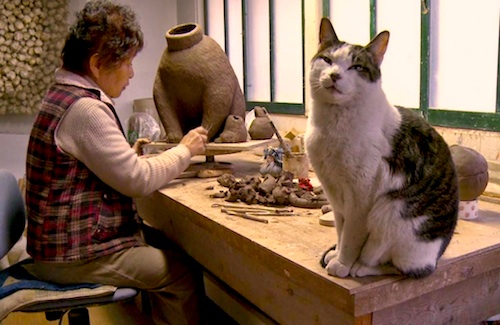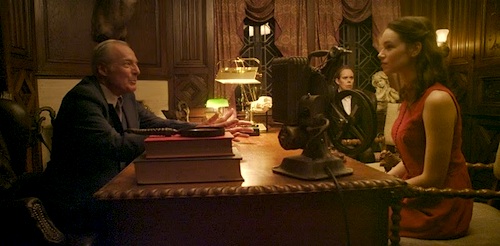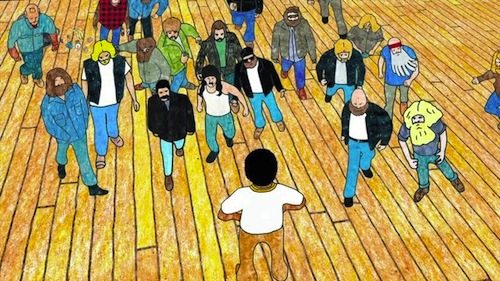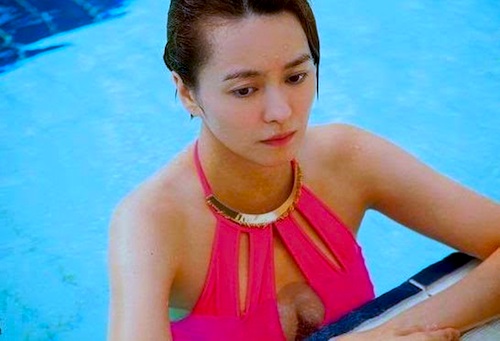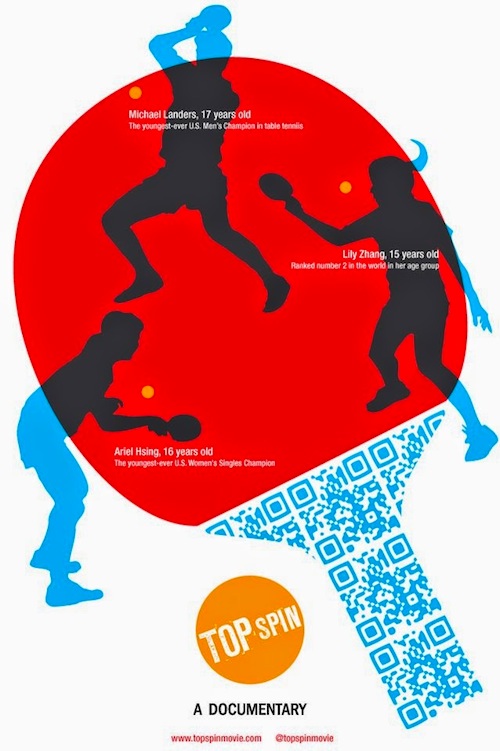By Joe Bendel. Being the subject of documentaries runs in the Vreeland family. Celebrated Vogue editor Diana Vreeland’s career was chronicled in her own doc, Diana Vreeland: the Eye has to Travel and she logically played a part in films by Bruce Weber and about Bert Stern. Through her influence, her photographer grandson Nicholas apprenticed with Richard Avedon and Irving Penn, but instead of following in her footsteps, he charted his own course as a Tibetan Buddhist monk. Vreeland’s life and complicated relationship to the worldly discipline of photography are explored in Guido Santi & Tina Mascara’s Monk with a Camera, which opens this Friday in New York.
Typically, young men of Vreeland’s background either become playboys or elite public servants, like his ambassador father. He was well along his way to the former, considerably aided by his precocious talent for photography. Meeting models was never a problem for him, but a chance introduction to Khyongla Rato Rinpoche changed his life. Through the spiritual instruction of his lifelong teacher, Vreeland found the meaning he had been seeking.
Although the Tibetan exile initially discouraged him from taking robes, Vreeland’s calling would not be denied. It helped when his cameras were stolen, thereby eliminating such distracting influences. However, his brother gave him a replacement as a going away gift, should inspiration later strike him. Years later, necessity would serve that function while spearheading a relatively ambitious fundraising drive to expand the growing Rato Monastery, his teacher’s former home. As a Vreeland, he still had plenty of well-healed contacts, but the financial crisis threw a spanner in the works. However, sales of his striking photographs successfully covered the sudden shortfalls. Such resourcefulness even impressed His Holiness the 14th Dalai Lama.
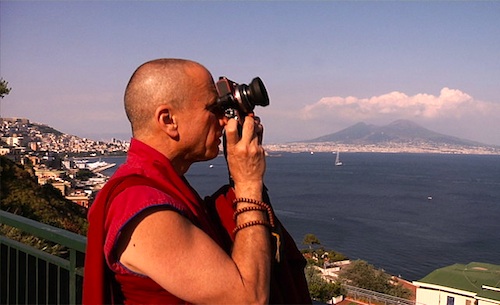
There are plenty of lessons to learn from Vreeland’s story, starting with the obvious inclusiveness of Tibetan Buddhism. While he might have engendered understandable skepticism when formally beginning his journey, clearly no racial resentment or class warfare prejudices hampered his acceptance in the cloistered community. It also suggests art can serve sacred causes as well as worldly desires. Indeed, his work shows a keenly humane eye for the bustling hardscrabble life around the monastery and throughout India.
For a film so focused on the spiritual life, Camera is surprisingly lively. Santi and Mascara captured some highly significant milestones, but also incorporate plenty of quietly telling moments. Despite their vows, Vreeland and his colleagues are still very definitely engaged in the business of life. It is just a terrible shame that they cannot practice their religion in its traditional spiritual seat. Indeed, Camera is rather timely in a way, following the recent APEC summit, where our current lame duck apparently had nothing to say about the state of the Tibetan occupation, once again. Recommended for spiritual seekers and photography bugs alike, Monk with a Camera opens this Friday (11/21) at the Lincoln Center.
LFM GRADE: B+
Posted on November 17th, 2014 at 7:59pm.
